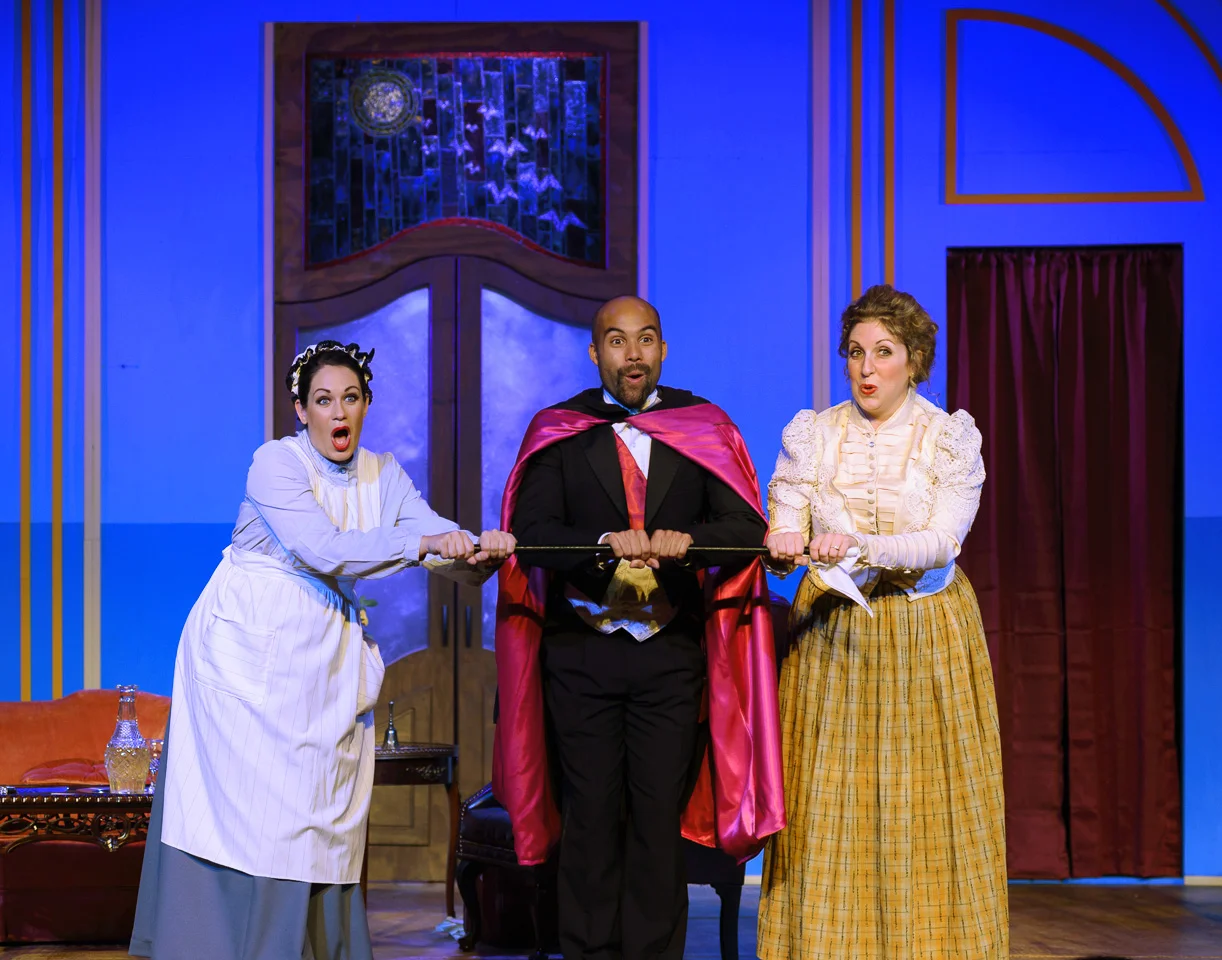Opening night of Fledermaus was lovely. Very proud of how it all came together. Really strong, stylish performances from everyone. Regrettably, I have not been as good as my cast members have been about taking pictures and sharing the experience. Since I don't have any photos to share, I'll post my program note. I'd be glad if it succeeds in capturing even a small fraction of my deep gratitude for the way our community came together to make this season a reality.
Here it is:
Starting the season with Die Fledermaus is a bit like eating dessert first. I can think of no piece more irresistible or indulgent. After the dire financial situation Oh! overcame with the help of our generous supporters, the time seems right to celebrate with a little something sweet.
Fledermaus is a piece unique in its devotion to the idea of fun. Our performers face the considerable challenge of making sure the audience enjoys themselves as much as the partygoers at Prince Orlovsky's ball (and boy, they party hard in that second act)! Luckily, our not-so-secret weapon is the Waltz King, Johann Strauss II, and his incredibly joyful music. How can we not bounce along to those wildly infectious polkas and waltzes?
What is especially engaging about the way the music operates in Fledermaus, is that, for much of the time, the characters onstage are hearing the same music that the audience does. It might seem like an obvious point, but the same can't be said about most arias and underscoring in opera. In Rosalinda's Csardas, when she sings of her supposed homeland Hungary; when Adele proves her talents for the stage in her "Audition Aria"; and when the partygoers jubilantly dance at the ball; the audience and the characters are all taking in the very same music in real-time.
Film composers call it diegetic music, when the source of the music is audible (and sometimes visible) to the characters in the story. This dynamic of shared experience between the characters and the audience is especially potent here in Lambert Hall, where the orchestra is in plain sight of the audience. Our wonderfully witty director Bill Fabris has staged certain characters to be aware of the orchestra, too, just one of his many creative touches that makes the action on stage more immediate and immersive.
I am always delighted when our audience members tell me that they feel as though they are part of the action. Our artists will tell you that the feeling is mutual; the proximity of the audience feeds them the energy to take their performance to the next level. It is one of the reasons our artists who move on to perform at bigger houses remain loyal to Oh!, eager to return.
This season, that synergy between audience and performer carries special weight, as we emerge on the other end of a fundraising campaign to save the company. It has been a remarkable crusade in which both artists and supporters alike demonstrated their deep sense of ownership over what Opera in the Heights has to offer. We thank you with our whole hearts for your incredible support.
We are excited to be opening this spectacular season to share the fruits of our collective investment and efforts. You might hear an added sparkle to the sounds coming from the stage and orchestra this season. I have certainly noticed something special in rehearsals. I think it might be the sound of gratitude.
